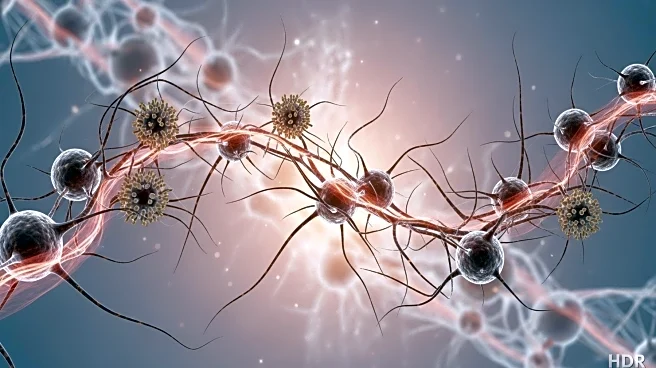What's Happening?
Researchers have discovered a connection between gut immune cells and Alzheimer's disease, revealing that antibody-producing B cells from the gut migrate to brain regions affected by Alzheimer's. This migration is influenced by chemokine signals from inflammatory brain cells. The study, conducted by the Buck Institute and published in Cell Reports, suggests that the gut-immune-brain axis could be targeted for new Alzheimer's therapies. Feeding mice a high-fiber diet restored gut immune balance and reduced frailty symptoms, indicating potential dietary interventions for Alzheimer's.
Why It's Important?
This research highlights the significant role of the gut-immune-brain axis in Alzheimer's disease, suggesting that gut health could influence neurological conditions. The findings open up possibilities for developing therapies that target gut immune cells to mitigate Alzheimer's symptoms. By understanding the migration of gut immune cells to the brain, scientists can explore new treatment strategies that focus on immune modulation and dietary interventions, potentially improving the quality of life for Alzheimer's patients.
What's Next?
Further studies are needed to determine whether gut immune changes are a response to brain alterations or if they drive Alzheimer's disease. Researchers may investigate the potential of altering the gut microbiome to prevent or treat Alzheimer's. Clinical trials could be initiated to test the efficacy of high-fiber diets in reducing Alzheimer's symptoms, paving the way for new dietary recommendations in managing neurodegenerative diseases.
Beyond the Headlines
The study raises questions about the broader implications of gut health on neurological diseases. Understanding the gut-brain connection could lead to breakthroughs in treating other neurodegenerative conditions like Parkinson's and multiple sclerosis. Ethical considerations regarding dietary interventions and their long-term effects on gut health and overall well-being must be addressed.









